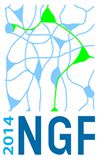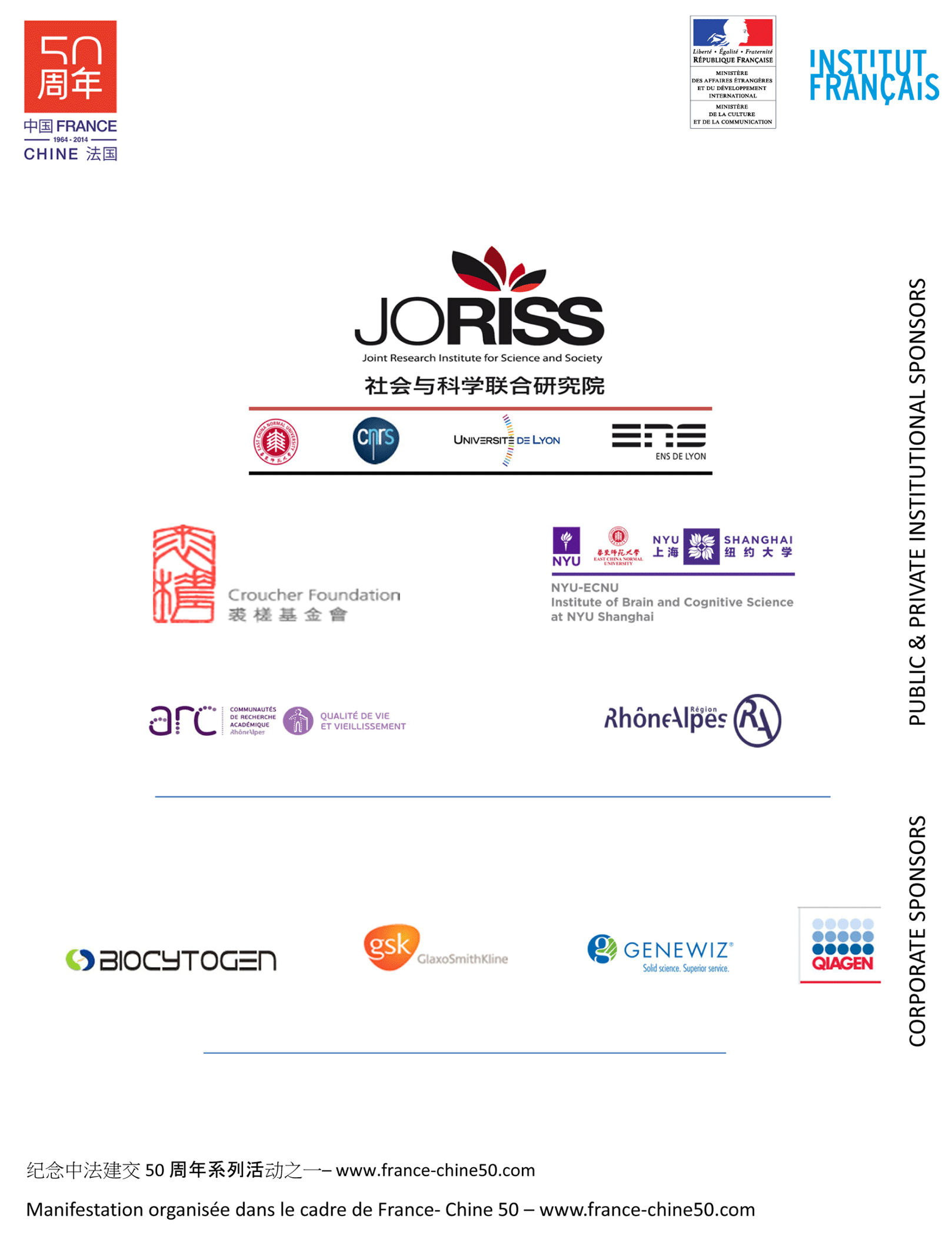CSHA / NGF 2014 joint conference on Nerve Growth Factor and
Related Neurotrophic Factors: Emerging Concepts,
New Mechanisms, Novel Technologies
Suzhou, China
June 23-27, 2014
Abstract Deadline extended to : May 4, 2014
 Schedule Overview
Schedule Overview
 Download Flyer
Download Flyer


Organized by:
Bai LU, Tsinghua University Medical School, Beijing, China
Tadaharu TSUMOTO, Riken Brain Science Institute, Wako, Japan
Moses CHAO, Skirball Institute NYU, New York, USA
Brian B. RUDKIN, CNRS/Ecole normale supérieure de Lyon, France &
East China Normal University, Shanghai, China
We are pleased to announce CSHA/NGF 2014 joint meeting on “Nerve Growth Factor and Related Neurotrophic Factors: Emerging Concepts, New Mechanisms, Novel Technologies?which will be held in Suzhou, China, located approximately 60 miles west of Shanghai. The conference will begin at 7:00pm on the evening of Monday June 23, and will conclude after lunch on June 27, 2014.
One of the key objectives of the joint CSHA/NGF 2014 Conference is to highlight novel concepts, mechanisms and technological approaches for the study of neurotrophic factor action both at the level of a single cell and through highly parallel processing of data to correlate with overall physiological responses. This, while offering the forum to discuss integration of this knowledge with global brain projects and vice versa. Indeed, the unique opportunity offered by the presence of, and presentations by, key representatives of the brain projects of China, Japan, Europe, USA, is expected to foster exciting exchange.
The high quality NGF meetings have been held since 1986, the year Rita Levi-Montalcini received the Nobel Prize for the discovery of Nerve growth factor with Stanley Cohen. Organized in locations mainly outside of the US, in alternate years to the Neurotrophin Gordon conferences, these conferences offer an international forum for rich and stimulating exchange. Further, they allow scientists and students from the region to meet with tenors in the field, while presenting their work in the form of posters and, for some, short talks and hot topics.
The 2014 edition will be the first to be held in China and the first in an Asian country. We expect approximately 20 ?30% of the speakers overall to come from the Pacific rim. The conference will include eight oral sessions and one poster session covering the latest findings across many topics in neuroscience. Many talks will be selected from the openly submitted abstracts on the basis of scientific merit and relevance. Social events throughout the conference provide ample opportunity for informal interactions. It is the shared objective of the organizing committee of NGF 2014 and of CSHA, to compose a program which truly reflects the state of the art in neuroscience by bringing together a group of scientific leaders, whose expertise encompasses seminal themes, including, but not limited to, those listed below.
Major Topics:
1. Brain Projects of Europe, USA, Japan & China
2. Emerging concepts I: Pro-fragment expression function, signalling
3. Emerging concepts II: Genetics & epigenetics
4. New mechanisms: Signaling and function
5. Plasticity, Circuits, Behavior
6. Novel technologies
7. Blood brain barrier (BBB)
8. Neurological and psychiatric diseases
Keynote Speakers:
Ralph Bradshaw,University of California, San Francisco, USA
Abstract title:Understanding NGF: On the trail for 40 years
Confirmed Speakers and Chairs:
Angelina Angelova, CNRS, Institut Galien Paris-Sud, FRANCE
Abstract title:Neurotrophin BDNF Delivery Nanoparticles
Mark Bothwell, University of Washington, USA
Abstract title:Oxidative Stress Promotes Signaling by p75NTR and Troy
Lei Cao, The Ohio State University, USA
Abstract title:What is the brain-cancer connection?
Maxime Cazorla, Paris XI University, FRANCE
Abstract title:Developing tools for the study of BDNF function in health and disease.
Moses Chao, New York University School of Medicine, USA
Abstract title:What happens when you start to lose BDNF
Bianxiao Cui, Stanford University, USA
Abstract title:Light-mediated kinetic control reveals the temporal effect of ERK and AKT signaling pathways in PC12 cells
José-Maria Frade, Cajal Institute, SPAIN
Abstract title:Genetic Regulation of Neuronal Tetraploidy in the Cerebral Cortex
Marc-Oliver Gewaltig, Ecole Polytechnique de Lausanne, SWITZERLAND
Abstract title:The EU Human Brain Project
Xiaoming Guan, GSK, CHINA
Abstract title:Neural protection/repair strategy for neurodegenerative diseases
Barbara Hempstead, Cornell University of Medicine, USA
Abstract title:BDNF proteins: Three forms, many functions
Hailan Hu, Shanghai Institutes for Biological Sciences, CHINA
Abstract title:Visualizing an emotional valence map in the limbic forebrain by TAI-FISH
Carlos Ibanez, Karolinska Institute, Sweden
Abstract title:Mechanisms Of Diversification And Allocation Of Cortical GABAergic Interneurons
Nancy Ip, The Hong Kong University of Science and Technology, China
Abstract title:Receptor tyrosine kinase-dependent signaling in synaptic plasticity and neurodegenerative diseases
Shawn Je, Duke-NUS Graduate Medical School, Singapore
Abstract title:Activity-dependent synaptic competition
Weizhi JI, Yunnan Key Laboratory of Primate Biomedical Research, CHINA
Abstract title:Mediated Gene Targeting in Monkeys with CRISPR/Cas9 and TALEN
David Kaplan, University of Toronto, CANADA
Abstract title:Translational control of neurogenesis and neural stem cell function
Masami Kojima, AIST, JAPAN
Abstract title:BDNF, its pro-peptide and proBDNF: their distinct roles and the modulation of their actions by BDNF polymorphism Val66Met
Hiroshi Kunugi, National Institute of Neuroscience, JAPAN
Abstract title:Role of BDNF in schizophrenia and mood disorders: from cells to humans
Bai Lu, Tsinghua University, CHINA
Abstract title:A new way of working
Minmin Luo, National Institute of Biological Sciences, Beijing, China
Abstract title:The role of the dorsal raphe in reward processing
Keri Martinowich, Lieber Institute for Brain Development, USA
Abstract title:Differential Contribution of Individual BDNF Splice Variants to Brain and Behavioral Functions
Patrick Mehlen, CNRS, Centre Léon Bérard, University of Lyon, FRANCE
Abstract title:TrkC and the Dependence Receptor paradigm
William Mobley, University of California, San Diego, USA
Abstract title:Chaperonin-based approaches to restore BDNF trafficking in Huntington Disease
Tatsuro Mutoh, Fujita Health University School of Medicine, Japan
Chair: NEUROLOGICAL & PSYCHIATRIC DISEASES
Fei (Ann) Ran, Broad Institute of MIT & Harvard, USA
Abstract title:CRISPR-Cas: development and applications for mammalian genome engineering
Yi Rao, Peking University, China
Abstract title:Transmisome
Brian B. Rudkin, CNRS/ENS LYON & ECNU, France
Chair: BRAIN PROJECTS
Mart Saarma, University of Helsinki, FINLAND
Abstract title:Biology and Therapeutic Potencial of CDNF-MANF Family Factors
Michael Sendtner, University of Wurzburg, GERMANY
Abstract title:BDNF signaling in cortico-striatal projections depends on dopamine receptor mediated transactivation of TRK-B.
Yi Eve Sun, UCLA / Tongji University, USA / CHINA
Abstract title:Transcriptome analysis of spinal cord injury
Tadaharu Tsumoto, Brain Science Institute, RIKEN, JAPAN
Abstract title:A Japanese project "Brain Mapping by Integrated Neurotechnologies for Disease Studies (Brain/MINDS)"
Xiaoliang Sunney Xie, Harvard University, USA
Abstract title:Live imaging of neurotransmitter release
Zhiqi Xiong , Institute of Neuroscience, CAS , China
Abstract title:Reelin regulates intramembrane proteolysis signaling to control radial migration of cortical neuron
Sheng-Jia Zhang, Norwegian University of Science and Technology, NORWAY
Abstract title:Optogenetic Decoding of the Hippocampal-Entorhinal Space Memory Circuit
We encourage abstracts to contain new and unpublished materials. The abstracts must be submitted electronically by the abstract deadline. Selection of material for oral and poster presentation will be made by the organizers. Status (fellow's talk/poster) of abstracts will be posted on our web site as soon as decisions have been made by the organizers.
Fellowship:
We are eager to have as many young people as possible attend since they are likely to benefit most from this meeting. A certain number of presentations by graduate students and postdocs in this conference will be selected as fellowship (USD $200-$500) awards. For more details, please visit Stipends
Sponsored by:


We look forward to seeing you at Suzhou in June 2014.
Package Content:
Package Type | Early Registration | Late Registration |
Payment Deadline: May 26, 2014 | Payment Deadline: Before Arrival |
Academic | ¥5,100 | $850 | ¥5,900 | $990 |
Student | ¥2,700 | $450 | ¥3,300 | $550 |
Corporate | ¥6,340 | $1,060 | ¥7,420 | $1,240 |
Media | ¥3,300 | $550 | ¥3,700 | $620 |
Please kindly note:
1. Registration includes food, but does NOT include Housing. Due to requests from participants to provide more housing at lower prices, we have expanded our housing options to include some lower priced nearby hotels. After completing the online registration, you will receive a link to the full list of housing options.
*Reference Room Rate:
CNY 500 per standard room per night in the Conference Hotel (Worldhotel Grand Dushulake Suzhou)
Up from CNY 200 per standard room per night in nearby budget hotels (within 5 km)
CNY 400-700 per standard room per night in nearby 4-5 star hotels
2. The early price will be available if the full payment is finished before the exact due date.
For USD participants, we will automatically change your package price to the update one if we could not successfully charge the payment from your registered credit card before the deadline.
For CNY participants, we will automatically change your package price to the update one if our bank account could not receive your full payment by wire transfer before the deadline.
3. For late registrations, your registration materials may not be guaranteed since the order is usually made in advance.
4. Please inform us your special request on food (vegetarian, kosher…etc.) or other things during the online registration or email us as early as possible so that we could make relevant arrangement accordingly.
5. Student package is exclusively designed for all the graduate, undergraduate and doctor students who have not received the doctor degree. (Student ID will be required upon arrival).
Currency converter